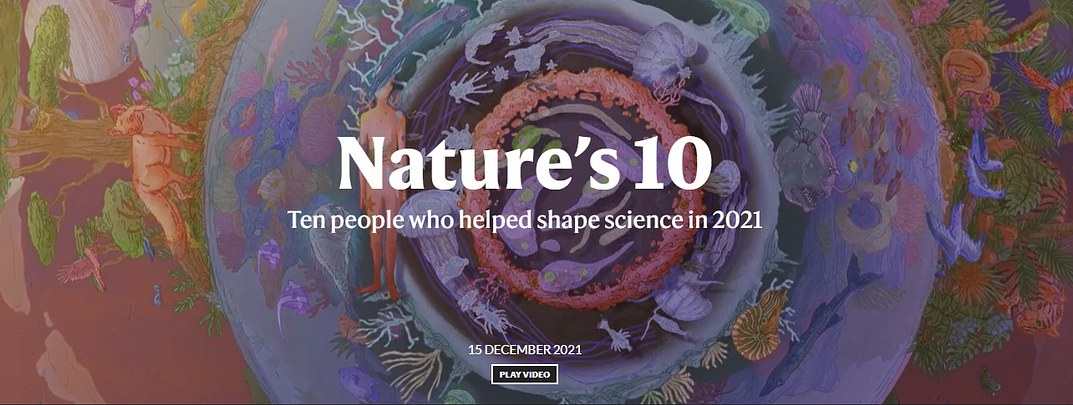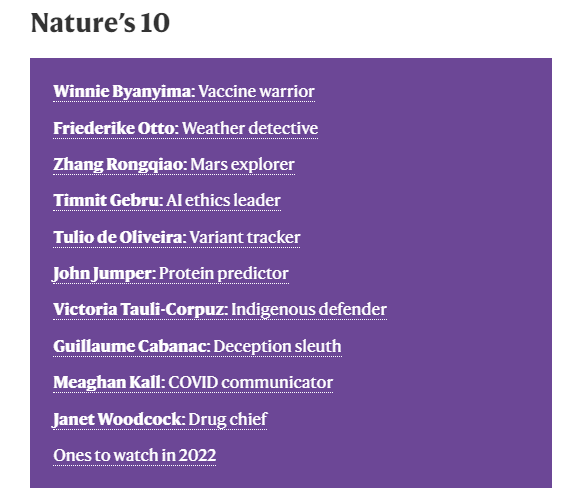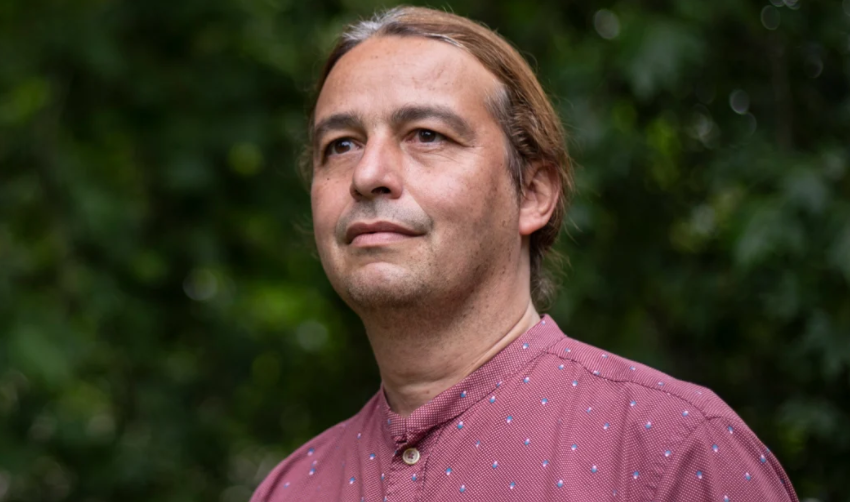The Brazilian Scientist, and bioinformatician in South Africa that helped to identify troubling variants of the coronavirus SARS-CoV-2.
Tulio de Oliveira: Variant tracker
A bioinformatician in South Africa helped to identify troubling variants of the coronavirus SARS-CoV-2.
Nature
By Linda Nordling
December 15, 2021
On 25 November, Tulio de Oliveira announced the discovery of a new variant of SARS-CoV-2.
Omicron, detected in samples from Botswana, South Africa and Hong Kong, had a Swiss Army knife of mutations that de Oliveira and other leading scientists feared might help it to evade immunity from previous infection or vaccinations.
For de Oliveira, director of South Africa’s KwaZulu-Natal Research Innovation and Sequencing Platform (KRISP), it was eerily reminiscent of the previous year, when his team had discovered another SARS-CoV-2 variant of concern in South African samples.
Beta, as that variant became known, led foreign governments to curb travel to and from South Africa many months after its discovery.
Both variants were spotted after doctors and laboratory workers flagged unexpected rises in infections in areas that had already been hit hard by COVID-19.
De Oliveira knew that by reporting yet another concerning variant, he ran the risk of incurring fresh sanctions, which would economically penalize countries in southern Africa. But he also knew it was the right thing to do.
“The way that one stops a pandemic is by quick action,” says the Brazilian-born bioinformatician. “Wait and see has not been a good option.”
The rapid identification of both Beta and Omicron in southern Africa reinforces the importance of having disease surveillance spread evenly around the world, says Jeremy Farrar, director of the biomedical research charity Wellcome, based in London.
“If an imbalance continues, then where disease surveillance is limited, we risk new variants of COVID-19 — or even new diseases entirely — cropping up and spreading unchecked,” he says.
The COVID-19 pandemic isn’t the first time that genomic sequencing has been used to trace outbreaks in Africa; scientists used it in the Ebola outbreak in West Africa from 2014 to 2016.
KRISP, created in 2017 with de Oliveira at the helm, has tracked pathogens behind diseases including dengue and Zika, and more common scourges such as AIDS and tuberculosis.
But never before have so many different samples of the same virus been sequenced in such a short period of time — both in Africa and around the world.
De Oliveira’s work has also influenced policymaking.
KRISP’s way of working combines cutting-edge molecular technology with close links to doctors and nurses on the front line, to inform policy in real time.
For example, their mapping of an early hospital outbreak of COVID-19 resulted in guidelines for ward layouts to prevent the virus from spreading in hospitals.
“Tulio has done an incredible job pioneering a new way of science responding to epidemics,” says Christian Happi, a molecular biologist who heads the African Centre of Excellence for Genomics of Infectious Diseases at Redeemer’s University in Ede, Nigeria.
In December, de Oliveira moved permanently to Stellenbosch, outside Cape Town, South Africa, where he has been setting up the Centre for Epidemic Research, Response and Innovation (CERI) since July (he will keep his position at KRISP).
The centre will work to control epidemics in Africa and the global south, and will house Africa’s largest sequencing facility.
The coronavirus pandemic has fuelled these investments, but the momentum is already spilling over into surveillance on other diseases, says de Oliveira.
“The main thing we have shown the world is that these things can be done in developing countries.”
Not that those countries have been rewarded for it — quite the opposite.
De Oliveira says he was extremely disappointed when rich countries imposed travel bans on southern Africa simply because the country had the scientific skill to discover new variants.
The scapegoating of South Africa “was almost a smokescreen for the vaccine hoarding, and for rich countries losing control of the pandemic”, says de Oliveira. “Of course I expected more.”
De Oliveira’s role in announcing two variants of concern has given him a reputation for delivering bad news.
When the Omicron announcement brought fresh travel bans, some South Africans, including politicians, queried de Oliveira’s right to make such pronouncements.
Some people even view the genomic-surveillance community as the enemy. But, he says: “We are not the enemies, we are the opposite.”
Originally published at https://www.nature.com


Click below to access the profile of the others awarded leaders.












